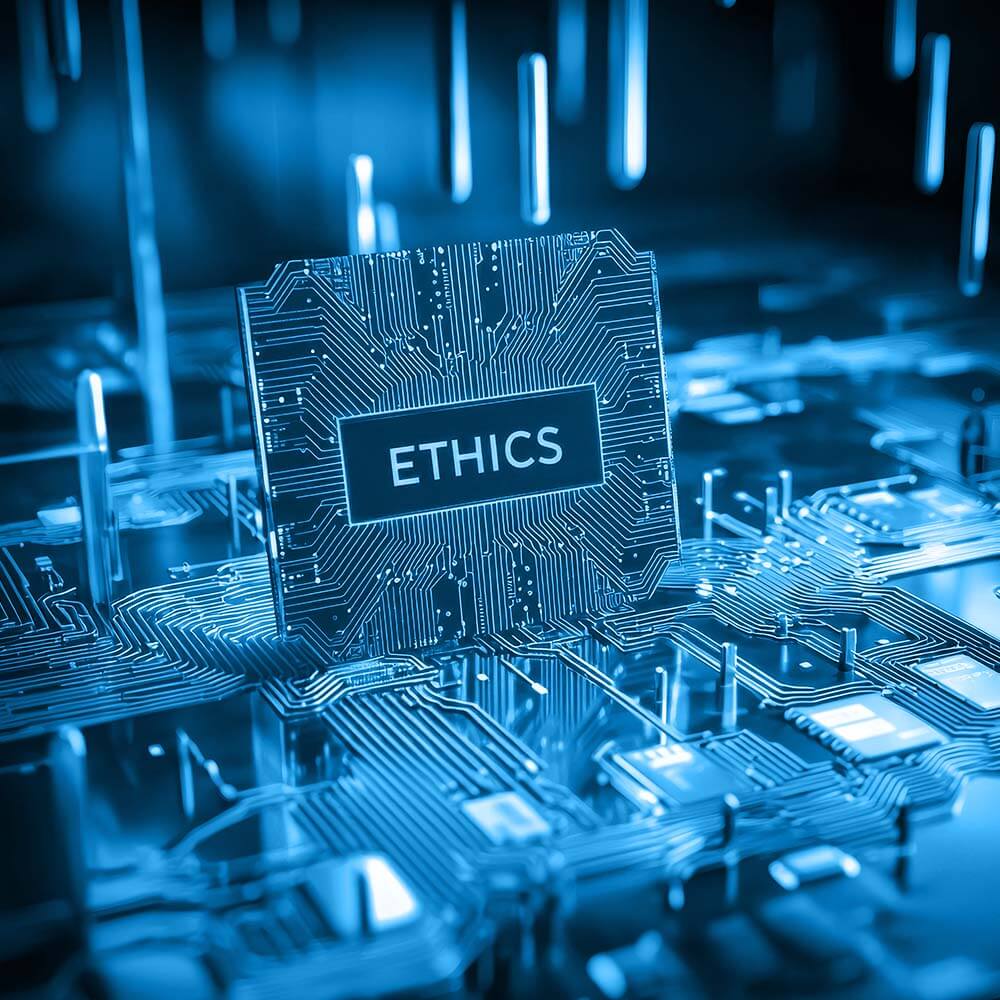Digital Responsibility | Acting for a sustainable future - DEEP


Green IT & Responsible Digital
Reconcile IT performance and a reduced environmental footprint for a sustainable future!
Why is AI an essential business lever?
Organisations that harness their data to optimise their business cut costs by up to 30 %, deliver ultra-personalised customer experiences and launch new products twice as fast. DEEP turns these tools into tangible results by unlocking the power of your data.
Digital Sobriety: An Environmental Challenge
The proliferation of devices (smartphones, PCs, servers, data centers, 4G/5G networks, fiber optics…) and the rise of data-intensive uses (streaming, video, AI) are increasing the environmental footprint of digital technology: mining extraction, water and energy consumption, greenhouse gas emissions.
Between 2014 and 2019, the digital sector doubled its greenhouse gas emissions, reaching 3.4% globally. By 2025, projections estimate these emissions will rise to 7%.
Not only must digital technology within companies contribute to reducing environmental impact, but it must also find room for maneuver through optimization and sobriety to enable the adoption of new technologies (Data, AI).


Expectations Around Responsible Digital Practices
The survey carried out by Boavizta confirms our discussions with digital professionals. Expectations in relation to Responsible Digitalisation converge around four key priorities:
-
Reducing the environmental footprint within a secure framework: This is the main concern for organizations that want to act within a robust, secure, and trustworthy environment.
-
Complying with increasingly demanding regulations: CSRD, REEN, and other regulations are targeting digital activities. Compliance is a critical issue.
-
Optimizing costs and generating ROI: Sobriety, resource pooling, and precise infrastructure management help reduce both costs and greenhouse gas emissions.
-
Enhancing differentiation and employer attractiveness: Embracing a Responsible and committed approach allows companies to stand out to clients, partners, and in recruitment, while meeting stakeholder expectations.
Responsible Digital Practices Rely on 3 Pillars
For DEEP, responsible digital practices are built around three complementary pillars. It is essential to establish a secure and trustworthy foundation first, then optimize existing solutions, and finally amplify positive impacts through new digital solutions.
1. Securing Your IT
For DEEP, the first responsibility is security, trust, and system robustness. Our ambition is to make digital technology resilient within organizations—building and strengthening a secure, trustworthy, and ethical foundation.
These foundations—cybersecurity, sovereignty, ethical and responsible AI, and data protection—form the base from which we work on optimization.

2. Optimizing Your IT
DEEP supports you in integrating environmental considerations into your thinking and decision-making criteria. Extending the lifespan of your equipment, promoting circularity, optimizing infrastructures, and measuring the impact of delivered services are the key areas we address with you.

3. Amplifying Positive Impacts
While digital technology is part of the environmental problem, it is also part of the solution. Beyond IT services, DEEP addresses business operations and activities with the goal of helping companies reduce their overall environmental impact.

The DEEP Method for Your Green IT Challenges
At DEEP, we integrate responsible digital practices at every stage of your IT projects. Depending on your level of maturity, we support you at each step:
ADVISE
Maturity assessment, impact measurement, sustainable digital strategy, support for certification and tooling.
BUILD
Infrastructures and telecommunication services
OPERATE
Fine-tuned infrastructure management (Fin-Green-OPS), action plan monitoring, and equipment circularity.
Key Figures on Responsible Digital Technology
60%
of the environmental footprint of digital technology comes from the manufacturing of equipment, compared to 40% from its usage.
200×
is the projected increase in global Internet traffic by 2050.
240 kg
is the amount of fossil fuels required to manufacture a single PC.
300%
is the potential increase in CO₂ emissions related to data and AI by 2050.
Ambitions for Responsible Digital Practices? Share Them With Us!
From your CSR strategy to the implementation of IT solutions, DEEP transforms your responsible digital ambitions into concrete business results.
